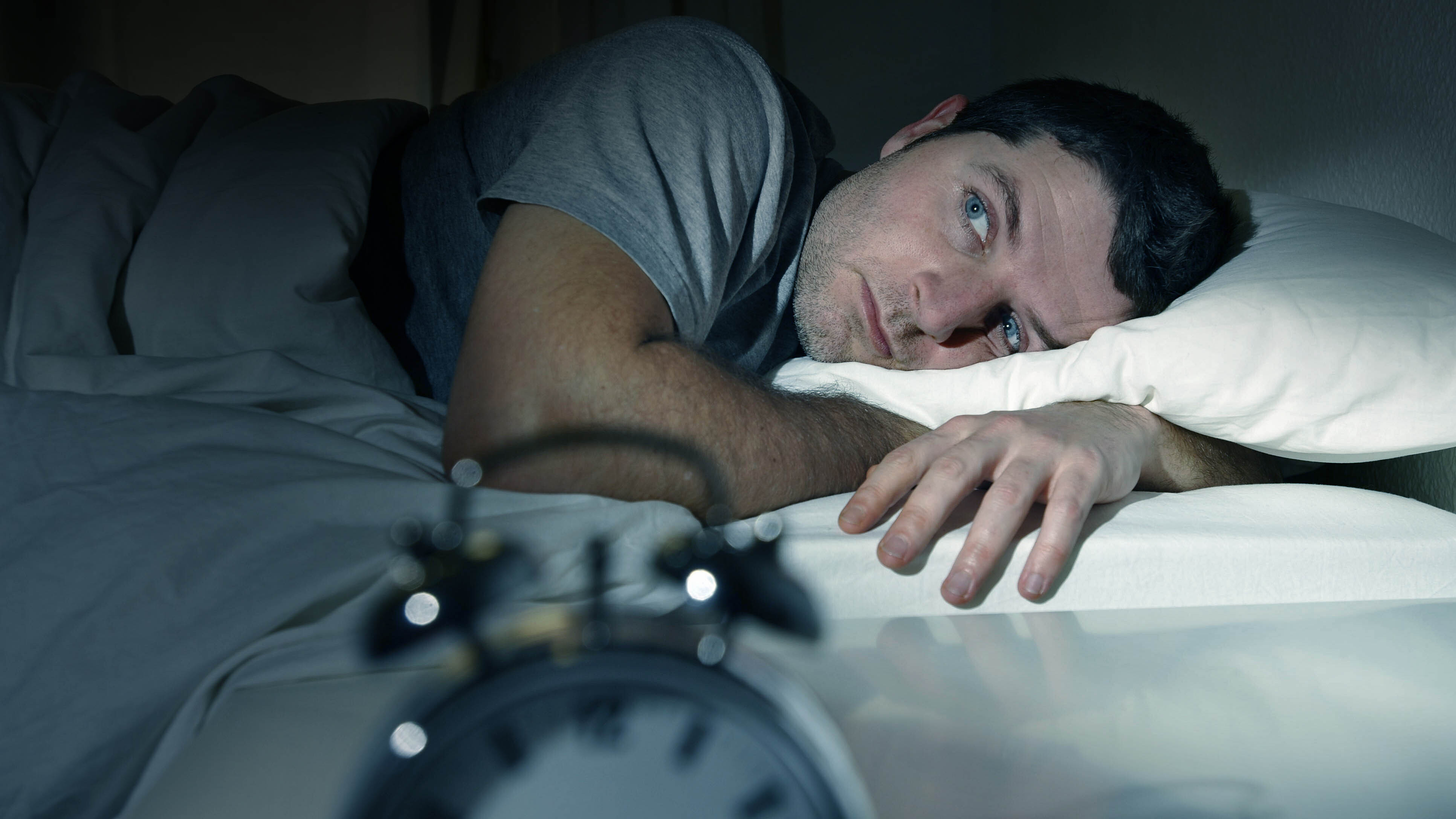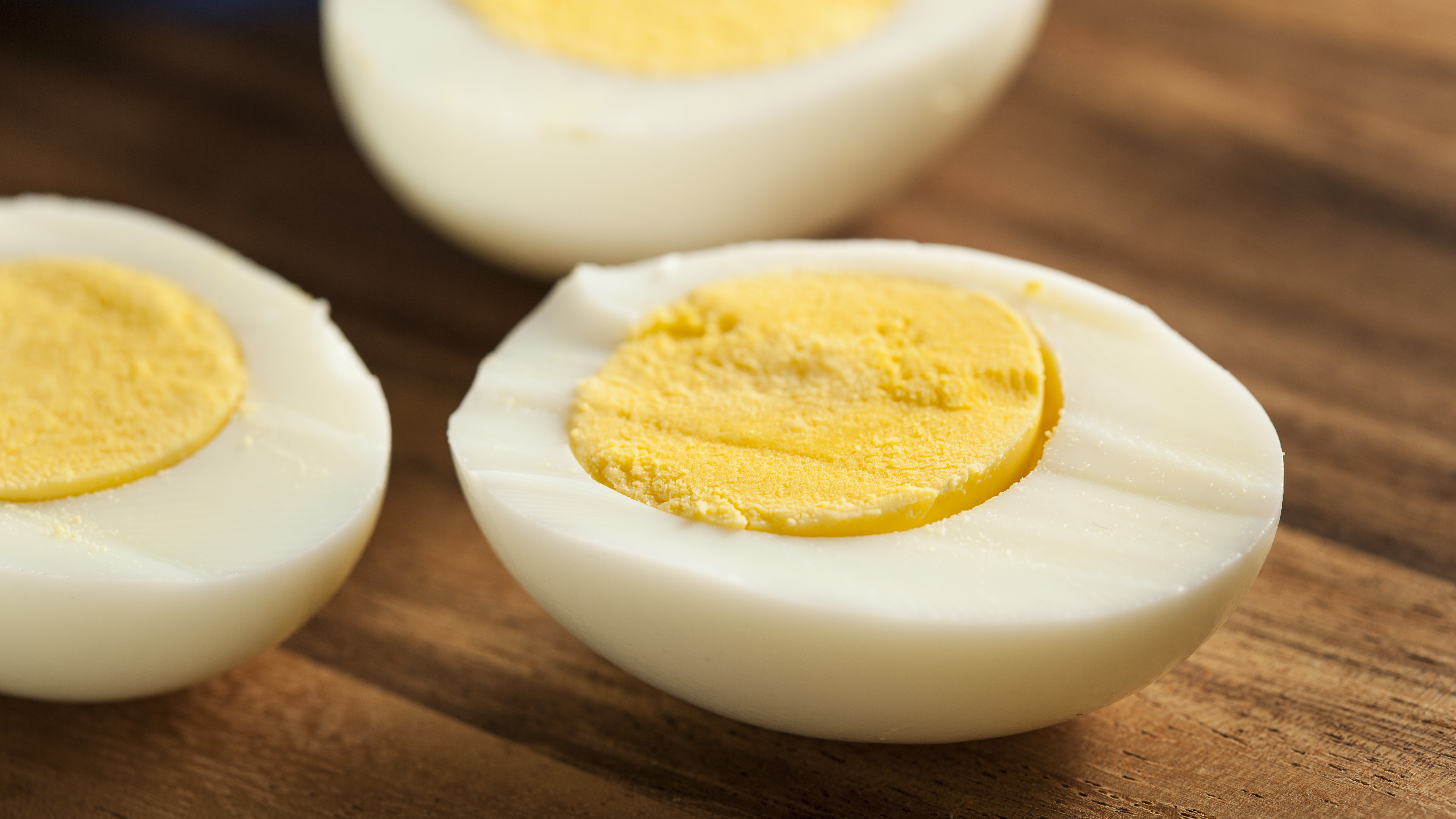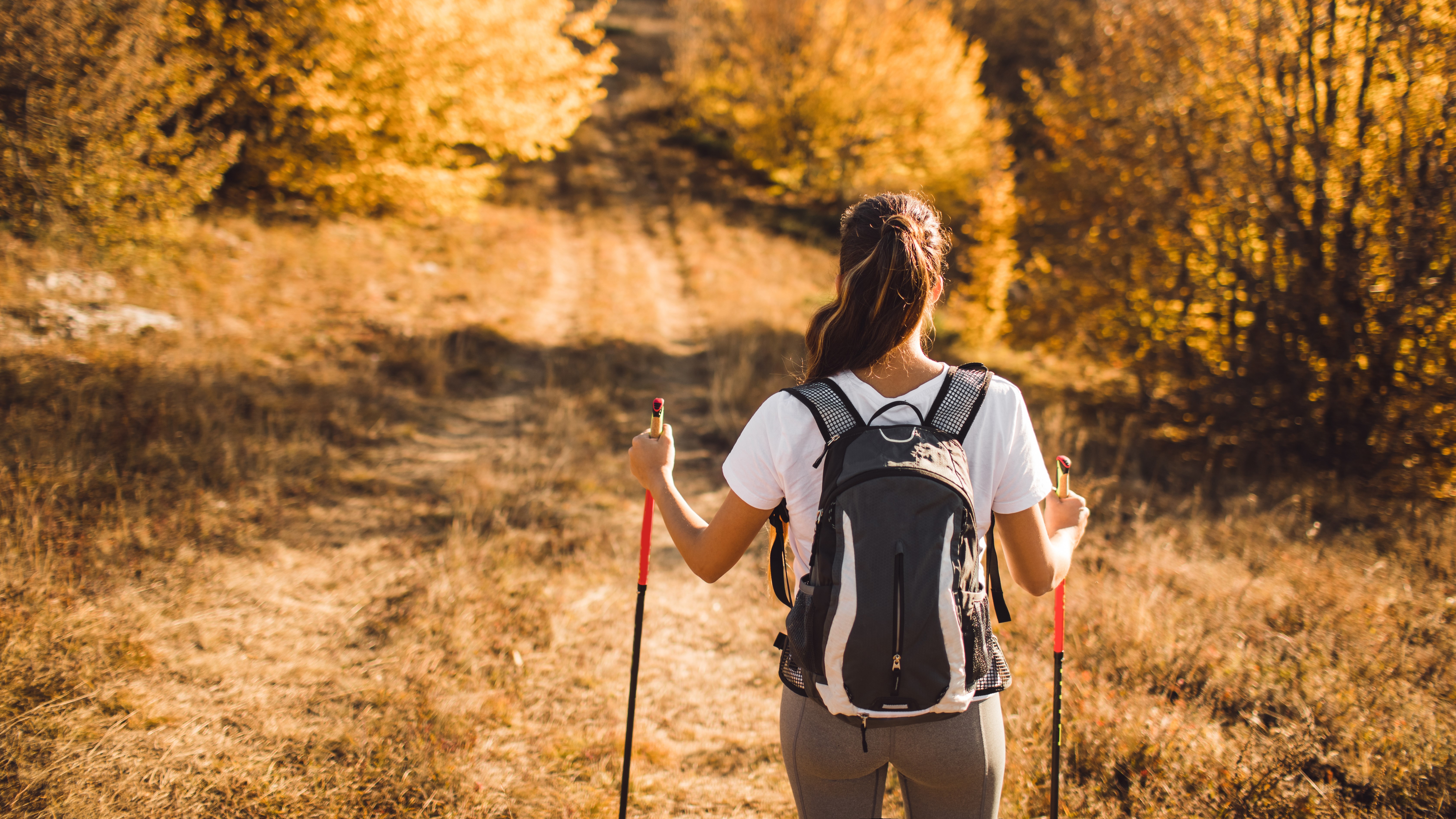Trouble sleeping? Being deficient in this vitamin could be why you can’t sleep through the night
There could be an easy fix to your sleep deprivation and why you keep waking up at night, new study suggests

Vitamin D might be known as the 'sunshine vitamin' but this nutrient could also play a key role in how well we sleep. According to recent studies, Vitamin D deficiency is linked to poor sleep quality and duration — and it affects roughly 35% of Americans. That's a lot of people suffering with poor sleep needlessly.
Vitamin D is produced by the body when we're exposed to sunlight, and nutritionists have long recognized a connection between this common vitamin and bone health. However recent research has found that those lacking in vitamin D are also more likely to experience reduced sleep quality and they're more likely to keep waking up at night.
So should we all be eating more fatty fish and soaking up the sun in the quest for better sleep? Here's what vitamin D deficiency means for your shut-eye...
Key takeaways of the study
- Low levels of vitamin D are associated with poor sleep quality
- Vitamin D deficiency might be linked to obstructive sleep apnea
- Research is needed into how increasing vitamin D levels benefits sleep
Recent research has suggested a strong link between vitamin D and sleep, with those experiencing sleep deprivation displaying lower levels of vitamin D than those with good sleep health.
The study has found evidence that vitamin D could be linked to disrupted sleep and reduced sleep duration — meaning as well as trouble sleeping through the night, you might be getting less rest overall.

And this isn't the first time a connection between vitamin D and sleep quality has been proposed. A 2020 study described vitamin D as "playing a promising role in sleep disorders," while research from 2014 suggested a connection between vitamin D deficiency and obstructive sleep apnea.
Vitamin D — a nutrient found in fatty food and produced by the body when exposed to sunlight — promotes bone and teeth health, as well as aiding the immune system. It's estimated that roughly 35% of Americans are vitamin D deficient, with that number rising to 50% worldwide.
Get instant access to breaking news, the hottest reviews, great deals and helpful tips.
Does this mean a lack of fatty fish and egg yolks might be responsible for your poor sleep? While vitamin D deficiency might be impacting your sleep quality, more research is needed to determine just what kind of role it plays in your sleep wellbeing.
It's also worth noting one big source of vitamin D is the sun, and regular exposure to daytime light helps regulate our internal body clock. So lacking sunlight during the day can both impact your vitamin D levels and disrupt your circadian rhythm — and that's bad news for your sleep all round.
How to get more vitamin D
Vitamin D can be divided into two types: D2 and D3. Vitamin D2 is found in plants, while D3 — which is considered the more effective form — is found in animal sources and produced by the skin when exposed to sunlight. If you're concerned about your vitamin D levels, consider speaking to a health professional about the best way to access vitamin D. Here are some of the most common sources of vitamin D:
1. Fatty fish and enriched foods
An easy way to differentiate between types of vitamin D is to remember the source: D2 is found in plants, D3 in animals. Foods that are naturally rich in D3 include egg yolks, fish such as trout, tuna and salmon, beef liver and cheese. Mushrooms are a common source of vitamin D2.

However, enriched foods are responsible for the majority of vitamin D consumption in the US. Milk and other dairy products (including dairy free milk alternatives) often contain added vitamin D.
2. Vitamin D supplements
Vitamin D supplements are available over the counter and are a common way to increase vitamin D intake. To aid with absorption, it's recommended to take vitamin D supplements alongside foods that contain vitamin D.
Be aware that some vitamin D supplements contain sugar, so you should avoid taking them before bed (eating sugar can keep you awake.) If you take any medications, speak to your doctor before using vitamin D supplements to prevent harmful interactions.
3. More sunshine
The body naturally creates vitamin D when exposed to sunlight and being outside is a key (and accessible) source of this nutrient for many people. And as an added benefit, daytime sunlight exposure helps your body clock keep ticking, meaning we can fall asleep easier at night and wake up better in the morning.
Direct sunlight is essential for vitamin D creation, so you can't just sit by a closed window (although we still recommend opening your curtains first thing in the morning.) But if you are going out in the sun, make sure to wear sufficient sunscreen.
You can also leave your daily run for the daytime to get some extra sunshine during your workout. So, if you want to do some vigorous exercising, avoid this healthy habit right before bed as it can be too stimulating and won't get you your daily dose of vitamin D.

Will taking vitamin D supplements help you sleep?
Some research suggests taking vitamin D supplements can have a positive effect on sleep quality, but these studies are still early and more research is needed. Vitamin D supplements won't work like a sleeping pill (you can't take one before bed and hope to get snoring) but improving your overall levels of vitamin D may help your sleep quality.
Other tips for improving sleep health
There are many things that contribute to our overall sleep quality, from the temperature of our bedroom to the time we finishing eating (three hours before bed, according to the 10-3-2-1-0 method.) Here are a few tips for getting better sleep:
- Avoid eating close to bed time: While a vitamin D rich diet might benefit your sleep, we don't recommend eating in the hours close to your bed time. Eating late means your body is still digesting when you go to bed, potentially causing indigestion.
- Choose the right mattress for your sleep style: Comfort is vital for good sleep quality. The best mattress for your sleep style will help you fall asleep, stay asleep and wake up well rested.
- Dim the lights in the evening: Sunlight might be good for your vitamin D levels, but if there's too much bright light in the evening you'll struggle to fall asleep. Turn the lights down as you progress in your bedtime routine, to tell your body that it's night.

Ruth is an experienced Senior Staff writer at Tom’s Guide, covering all things sleep and mattresses. She writes to help people sleep better, from how-tos to the latest deals to mattress reviews, and has interviewed an array of experts who share her passion. She is also our specialist on memory foam — she’s flown around the world to see memory foam being made — and leads our hotel mattress content. She has a deep interest in the link between sleep and health, and has tried enough mattresses, from Helix to Nectar to Simba, to know the right bed really can make a difference to your wellbeing. Before joining the team at Tom’s Guide, Ruth worked as a sleep and mattress writer for our sister website, TechRadar.
 Club Benefits
Club Benefits





